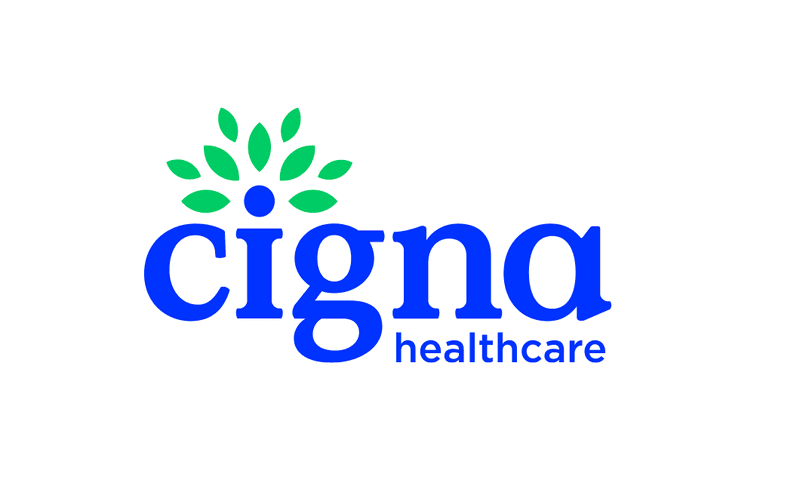Are you looking for Cigna TMS treatment in Florida? You may have questions about the health coverage options for this innovative therapy that offers hope for those struggling with depression and other mental health conditions. On this page, you’ll learn more about Cigna TMS treatment coverage, TMS benefits, and how it’s changing lives across Florida.

Cigna TMS (Transcranial Magnetic Stimulation) Treatment in Florida
What is Transcranial Magnetic Stimulation (TMS) Therapy?
Transcranial Magnetic Stimulation (TMS) is a contemporary therapeutic technique that involves the application of magnetic fields to particular regions of the brain. This non-invasive brain stimulation is primarily used to treat major depressive disorder (MDD), and the neurostimulation techniques make it a well-tolerated option for those who do not respond to other forms of treatment or medication.
During TMS therapy sessions, a coil is placed on the scalp to deliver magnetic pulse stimulation to specific brain regions associated with mood regulation. The TMS mechanism of action involves using magnetic pulses to induce electrical currents in targeted brain areas. When a magnetic coil is placed on the scalp, it generates a rapidly changing magnetic field, known as Theta Burst Stimulation (TBS), that penetrates the skull and induces electrical currents in the underlying brain tissue. This therapy promotes positive changes in brain function and is generally considered a safe therapeutic intervention.
However, like any medical procedure, it may cause some side effects. Common TMS side effects are usually mild and include scalp discomfort or a minor headache at the treatment site during or after the treatment. These effects tend to decrease as the treatment progresses, ensuring TMS efficacy and safety.
TMS has shown promising results in relieving depression symptoms. Research indicates that it’s effective in reducing the severity of depressive episodes. It’s common to require multiple treatments before noticing improvement in symptoms. Typically, individuals undergo daily sessions for several weeks to fully experience TMS therapy’s benefits.
As we continue, you’ll discover specific statistics highlighting success rates and the overall impact of TMS as a transformative mental health treatment typically covered by health insurance providers, including Cigna.

Is Transcranial Magnetic Stimulation Treatment Evidence-Based?
Transcranial Magnetic Stimulation (TMS) treatment is evidence-based and has been gaining attention in recent years due to its potential to alleviate symptoms of depression and other psychiatric disorders. Several clinical studies have demonstrated the effectiveness and safety of TMS in treating major depressive disorder (MDD) that has not responded adequately to traditional antidepressant medications or therapies.
Although TMS is scientifically supported for select conditions, it might not always be the primary treatment choice. The suitability of TMS hinges on various factors like the precise diagnosis, treatment background, and the patient’s overall health. Moreover, ongoing studies are delving into TMS’s potential for addressing conditions beyond depression. Notably, TMS for migraine treatment has yielded encouraging outcomes.
Who is Cigna?
Cigna Corporation has a global presence, and its headquarters are in Bloomfield, Connecticut. The company offers a wide range of health insurance plans, including Medicare, dental, disability, and international health insurance. Cigna serves clients not only in the United States but also in over 200 countries and territories worldwide.
Cigna Healthcare offers a variety of health coverage options that cater to diverse preferences and needs, including the Cigna HMO (Health Maintenance Organization), PPO (Preferred Provider Organization), EPO (Exclusive Provider Organization), POS (Point of Service), Individual and Family, and OAP (Open Access Plus) Plans. Each plan is designed to provide specific benefits and coverage options to individuals and families, enabling them to select the one that aligns with their unique healthcare requirements.
Cigna was established in 1982 after the Connecticut General Life Insurance Company and the Insurance Company of North America merged. Their main goal is to improve the insured’s health, happiness, and peace of mind. They achieve this by reducing costs, increasing stability, and simplifying the medical claims process.
Besides their commitment to individual well-being, Cigna is actively involved in corporate social responsibility and sustainability. They’ve set an ambitious target to become carbon neutral by 2040 and are undertaking various sustainability initiatives, including minimizing waste and water consumption, investing in renewable energy, and advocating for sustainable sourcing practices. Cigna is dedicated to contributing positively to environmental and social concerns beyond healthcare.

At The Sylvia Brafman Mental Health Treatment Center in Fort Lauderdale, Florida, our team of dedicated professionals is ready to guide you. We offer IOP and a variety of treatments programs, each uniquely designed to meet your needs. So don’t wait, reach out to us today! Either give us a call or fill up the form below to request a callback.
"*" indicates required fields

Do Cigna Insurance Plans Offer Coverage for TMS Treatment in Florida?
Cigna typically provides coverage for Transcranial Magnetic Stimulation (TMS) treatment under certain circumstances, especially when deemed medically necessary. Cigna acknowledges the importance of innovative treatments for mental health conditions and facilitates access to this transformative treatment option in The Sunshine State.
Our patient advocates can provide detailed information regarding your in and out-of-network coverage options, any prior authorization requirements, copayments, deductibles, coinsurance, limitations, exclusions, and more. You can also confirm your insurance coverage via our convenient and confidential online verification form.
Does Cigna Cover TMS Therapy for Treating Depression in Florida?
Cigna usually provides coverage for medically necessary TMS therapy in Florida. Cigna TMS therapy coverage extends access to this effective treatment, offering potential relief when traditional therapies like medications have proven ineffective or insufficient. If you’re interested in exploring TMS treatment for depression or another condition and need to know more about Cigna’s coverage options, call 877-958-9212.
Our dedicated team can assist you in navigating your insurance plan, providing details on copayments, deductibles, and any other relevant information concerning TMS and major depressive disorder (MDD). With the support of Cigna and The Sylvia Brafman Mental Health Center, your journey to finding relief and well-being is within reach.
TMS Center in Florida That Accepts Cigna Insurance Plans
The Sylvia Brafman Mental Health Center offers comprehensive mental health care services, including Transcranial Magnetic Stimulation (TMS). This treatment entails daily sessions over several weeks, is well-tolerated, and does not require anesthesia, presenting an excellent alternative for those who prefer non-pharmacological or non-invasive approaches.
Our highly skilled medical and clinical team boasts decades of combined experience, assisting numerous individuals in overcoming mental health obstacles. We may also accept your Cigna mental health insurance coverage, enhancing the accessibility of our services. For further details about our offerings, coverage options, and more, please reach out to us at 877-958-9212 or visit our physical location:
- The Sylvia Brafman Mental Health Center: 7710 NW 71ST CT, Tamarac, Florida, 33321

What Conditions Could Cigna Offer Coverage for TMS Therapy in Florida?
Cigna evaluates coverage for TMS therapy for specific conditions, offering an alternative for individuals unresponsive to standard, first-line treatments. This personalized approach to TMS evaluation acknowledges it may not be the primary treatment initially. The following outlines conditions where TMS may be potentially covered, emphasizing its efficacy in addressing various conditions.

What is The Cost of TMS Treatment Without Cigna Health Insurance?
Without insurance coverage, a single course of Transcranial Magnetic Stimulation (TMS) can range from $6,000 to $12,000. Typically, a course of TMS involves daily sessions over four to six weeks. However, the duration of treatment is contingent upon factors such as your response and the prescribed treatment protocol from your healthcare provider.
How Do I Get My Cigna Insurance Plan to Pay for TMS Therapy in Florida?
To initiate coverage for TMS therapy in Florida through Cigna, fully understanding your Cigna Insurance plan and its coverage details is crucial. For guidance in navigating the complexities of TMS treatment for depression and other disorders, as well as for answers to your coverage inquiries, please call 877-958-9212.
Once you clearly understand your coverage specifics and requirements, work closely with healthcare professionals and the treatment center. Ensure open communication with Cigna member services to obtain prior authorization for your proposed treatment plan. This proactive approach facilitates the approval and minimizes the likelihood of denials during the medical claims process.




